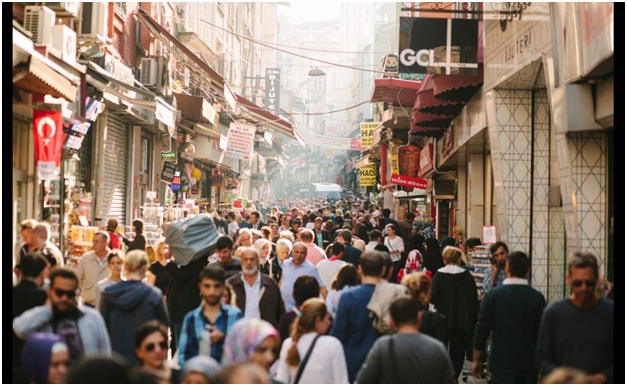TURKEY’S ROLE IN THE REFUGEE CRISIS 02.11.2015
An image of a drowned Syrian boy washed up on the beach clearly signifies a failure on the part of the global humanitarian system. A Syrian father attempted to save his family via a boat trip organized by human smugglers, but the journey ended tragically. While such incidents should serve as a wake-up call for countries around the world, the plight of Syrian refugees is getting worse and nothing close to a concrete solution has surfaced thus far.
The humanitarian system, as we currently understand it, is based on the endeavors of the UN, international humanitarian organizations, and state actors. Traditional donors from the Western and Northern hemispheres, emerging ones in the Global South, and newcomers from the periphery all maintain differing humanitarian priorities. These differences are evidenced by the international community’s failure to address tragic situations like those of the Syrian refugees.
One country that has undertaken positive steps on behalf of Syrian refugees is Turkey, which has embraced more than two million Syrian guests. The Turkish Cooperation and Coordination Agency (TIKA) is responsible for coordinating Turkey’s official aid program, engaging in both humanitarian aid distribution and development cooperation. TIKA offers a holistic approach to help alleviate suffering, and simultaneously plans for and builds sustainable futures for communities in need. It operates under the guiding principles of Turkey’s humanitarian diplomacy, which considers TIKA a chief actor in Turkey’s official aid capacity. Coordination for TIKA’s development activities in sectors such as education, health, transportation, communication infrastructure, environmental protection, as well as its emergency and humanitarian aid efforts, are conducted through its offices in 48 developing partner countries.
Although it remains a work in progress, Turkey’s humanitarianism has had a global reach and has achieved considerable success. To further enhance its efforts, Turkey must supplement its humanitarian efforts with additional capacity building, better coordination of aid, and efficient and functional project identification and implementation. Nonetheless, Turkish state and societal actors, in particular humanitarian NGOs, are willing to promote Turkey’s humanitarian role despite problems in the global humanitarian theater. This strong domestic support will keep Turkey in a position to serve as a major global humanitarian player for the foreseeable future.
Turkey’s humanitarianism constitutes a landmark example of bringing new capacities and resources to the global humanitarian system. When it comes to chronic refugee crises like what we are witnessing in Syria, the world can certainly do better. What is lacking is a unified effort to combine resources, plan pre-emptively, and implement accordingly. Turkey has taken a critical first step, but it is time to join hands at both state and societal levels and work towards an all-encompassing and functional humanitarian space.
Serdar Çam is the President of the Turkish Cooperation and Coordination Agency (TIKA) of Prime Ministry of Turkey since 2011. He was previously Chief of Cabinet to the Speaker of the Grand National Assembly of Turkey. Mr. Çam has master’s degree in management from Boston University and Ph.D. from Marmara University in international marketing. During his tenure in different institutions, he also lectured on international investment, international trade and management in different universities.
The Cipher Brief - October 31, 2015 | Serdar Çam






